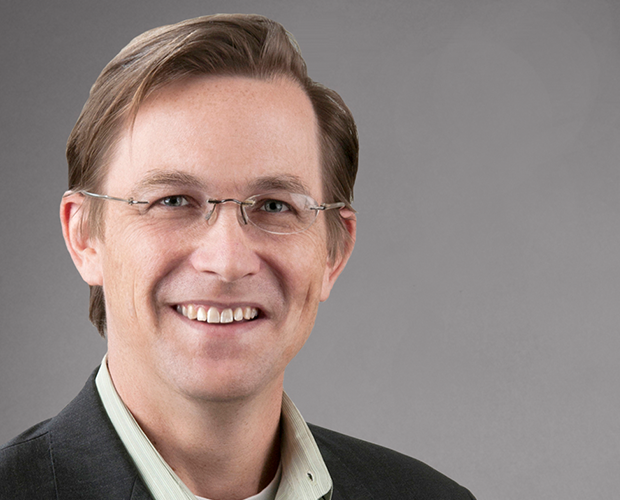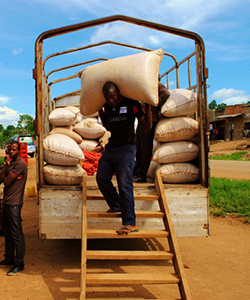Molding future technical experts

Craig McIntosh discusses the interplay of public policy, technology and economic development at GPS
Nov. 21, 2017 | By Rachel Hommel | GPS News
With a background in conducting field evaluations of innovative anti-poverty policies in Mexico, Guatemala, Malawi, Rwanda, Uganda and Tanzania, Craig McIntosh is a true global leader.
McIntosh, a development economist whose work focuses on program evaluation, is a professor at UC San Diego’s School of Global Policy and Strategy (GPS) and co-director of the Policy Design and Evaluation Lab (PDEL) based at the School.
As the co-director of PDEL, McIntosh is an expert on issues related to credit, insurance and savings markets in developing countries, as well as on how to evaluate policy impacts; from how to design and conduct randomized field trials to the design of surveys and other forms of data collection.
With expertise in program evaluation, McIntosh looks at grassroots level impact, studying what happens as new technologies are adopted across the developing world.
“Improvements in technology can have many effects, including concentrating power and concentrating wealth,” said McIntosh. “We want to push implementation that will improve accountability, improve access to markets for the poor and expand access to financial services – that’s the real work we are trying to achieve.”
Working very closely with institutions on the ground, his most recent project looks at mobile money implementation in Rwanda. In a region where few people have real banks, this technology assists in the burning need for financial services and provides a new conduit through which to provide benefits.
Given the rise of mobile money as a new way of getting benefits into the hands of citizens in the poorest countries, the question arises if we need to rethink the channels through which international aid flows.
“It’s not about building smart phone apps, it’s not about reinventing the technology that people possess,” said McIntosh. “Using advanced back-end systems to service the basic mobile phone, we want to enable that very simple piece of technology that people do possess to do really creative things.”
When asked where the intersection of STEM and policy is headed, McIntosh stresses the importance of opportunity. While technology cannot solve all public policy problems, it is about recognizing limitations set by infrastructures and finding exciting new interventions, such as his work building high-tech trading platforms for smallholder farmers in Uganda.
“It’s about the intersection of what you are good at, and what you are passionate about,” said McIntosh. “It’s about being self-aware enough to pursue graduate school and find that intersection where you are building up the ability to be a world class contributor in something that you are really passionate about…the passion matters a lot.”
 As the chair of the GPS Curriculum Committee, McIntosh helps mold the leaders of tomorrow. Focusing on quantitative methods training, he stresses the importance of transparency, especially with regards to data structure and analytical structure.
As the chair of the GPS Curriculum Committee, McIntosh helps mold the leaders of tomorrow. Focusing on quantitative methods training, he stresses the importance of transparency, especially with regards to data structure and analytical structure.
With regards to his economic development courses, McIntosh teaches students how to think critically about how markets are going to work, who is going to try and be active and corrupt the program and how the program is working against interests of entrenched people on ground.
“We place a lot of people into jobs where they are the data expert,” said McIntosh. “Meaning well and thinking critically not only can go hand in hand but must in order to achieve success in international development.”
Graduates of the GPS two-year programs have unique advantages to build up technical training, due in part to the strong quantitative curriculum. Each quarter students are exposed to a variety of technical skills, taking them through analytics, econometrics, GIS and remote sensing, accounting and finance and cost benefit analysis.
With a strong private sector in California, the curriculum highlights the clear relationship between private sector and international relations, with over half of graduates placing into this sector.
“We teach people how to think about institutions, incentives and constraints in a manner that will carry across from private sector applications to public sector applications to NGOs,” said McIntosh. “We’ve worked hard to have coursework that is not based on war stories about what not to do but real, concrete technical skills.”

